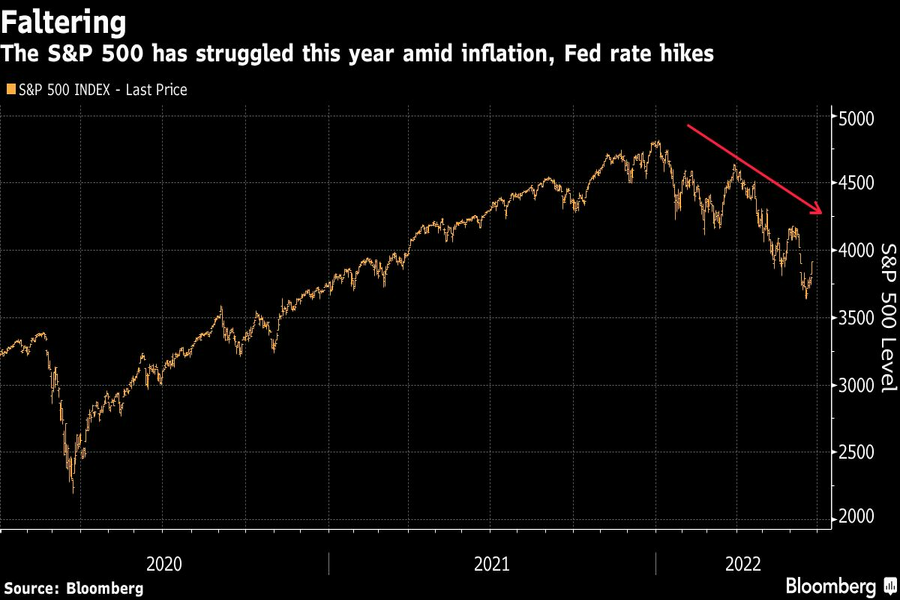

The first hints that consumer belt-tightening is passing through to corporate earnings are coming in, posing a bigger risk to U.S. equities than stock-selling by American households, according to Goldman Sachs Group Inc.
High inflation and declining asset prices have started to strain household finances, Goldman strategists led by David Kostin wrote on Friday. They cited the 0.3% drop in retail sales in May and the record-low Michigan consumer sentiment reading for June.
Retailers such as Target Corp. and Walmart Inc. appear to have overestimated consumer demand in some general merchandise categories and are now discounting items to clear excess inventory, the strategists said.
“Declining consumer spending does represent a threat to earnings for Consumer Discretionary stocks and the Autos industry group in particular,” they said. “Used car prices have declined 6% since January, a sign that demand for vehicles overall may be faltering. The consensus expectation of 13% industry sales growth in 2023 appears Pollyannaish.”

Goldman still expects the S&P 500 to end the year at 4,300, compared with a median 4,650 among strategist targets compiled by Bloomberg as of mid-June. The gauge closed on Friday at 3,911.74. It’s down about 18% so far this year, struggling with factors such as Federal Reserve rate hikes and stubbornly high inflation.
Some investors worry that higher living costs, rising bond yields and weak trailing equity returns may lead to household capitulation in the equity market and further pressure stocks, Kostin and his team said.
But data show households’ demand for equities have stayed “surprisingly strong” this year, they said. Also, as most of the ownership is with the richest people who are more insulated from inflation, and corporates tend to buy when households sell, the firm isn’t as worried about those as factors that would drive down equities.
“The S&P 500 rose by 8% on average during the years in since 1950 in which households sold stocks most aggressively,” the strategists wrote.

Driven by robust transaction activity amid market turbulence and increased focus on billion-dollar plus targets, Echelon Partners expects another all-time high in 2025.

The looming threat of federal funding cuts to state and local governments has lawmakers weighing a levy that was phased out in 1981.

The fintech firms' new tools and integrations address pain points in overseeing investment lineups, account monitoring, and more.

Canadian stocks are on a roll in 2025 as the country prepares to name a new Prime Minister.

Carson is expanding one of its relationships in Florida while Lido Advisors adds an $870 million practice in Silicon Valley.
RIAs face rising regulatory pressure in 2025. Forward-looking firms are responding with embedded technology, not more paperwork.
As inheritances are set to reshape client portfolios and next-gen heirs demand digital-first experiences, firms are retooling their wealth tech stacks and succession models in real time.
